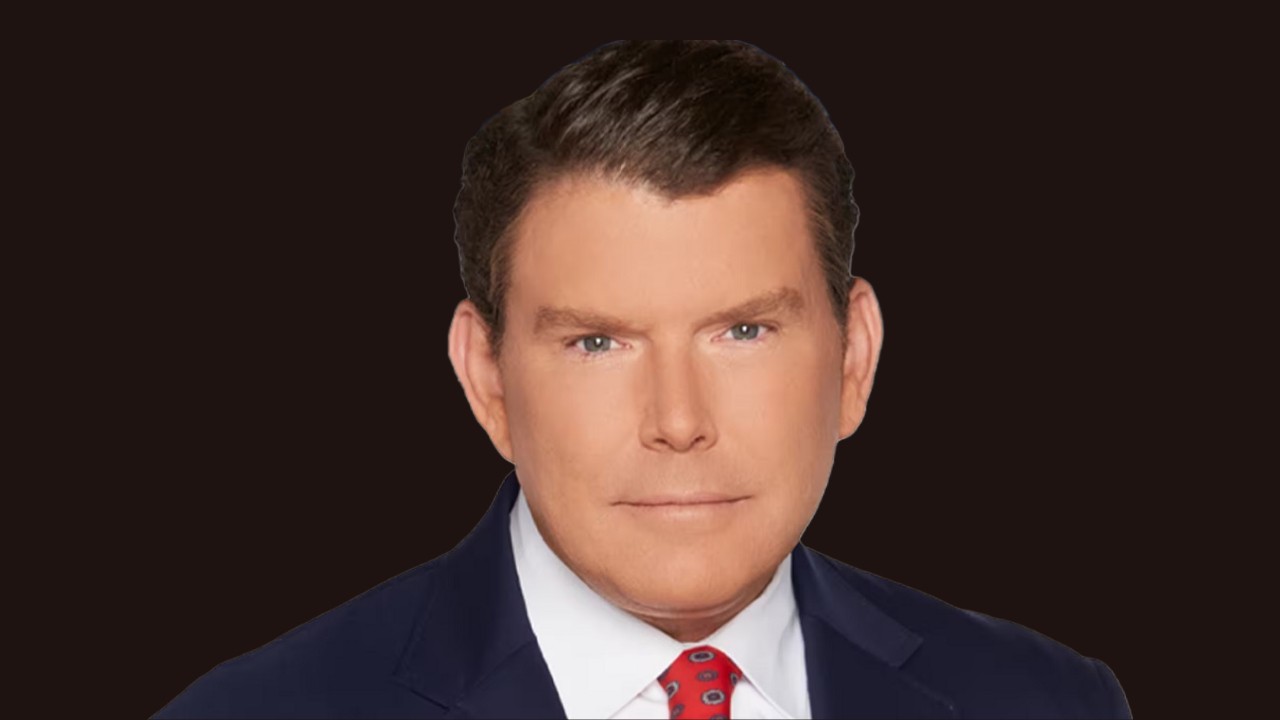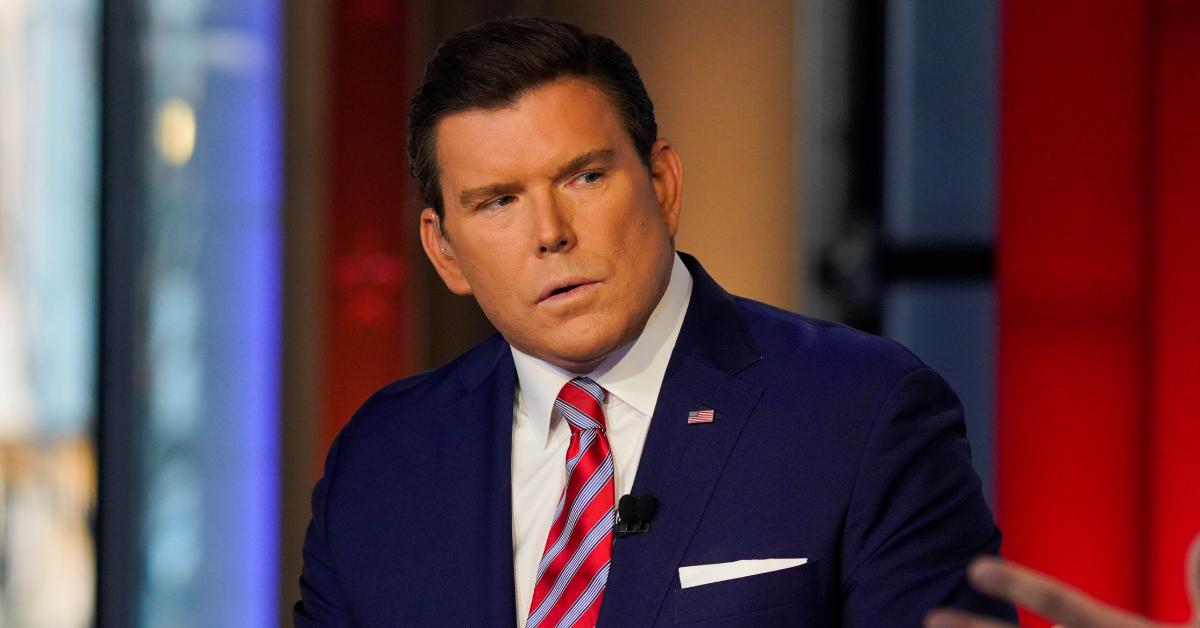Bret Baier Consoles Kudlow On Tax Hike: A Deep Dive Into Policy, Politics, And Perspective
When it comes to tax hikes, the conversation often feels like a tug-of-war between opposing forces in Washington. Bret Baier, the esteemed anchor of Fox News, recently sat down with Larry Kudlow, a key figure in economic policy, to console him over the looming specter of tax increases. This is more than just a political discussion—it's a look into how decisions made today can shape the economic future of millions of Americans. And if you're wondering what's at stake, well, buckle up, because this is where policy meets reality.
Taxes have always been a hot topic, and for good reason. Whether you're a small business owner trying to keep your shop afloat or a family looking to save for the future, tax hikes can hit hard. Bret Baier knows this, and his ability to break down complex issues into digestible insights is what makes him such a compelling figure in journalism. In this conversation with Kudlow, he doesn't just talk numbers—he talks about the human impact behind those numbers.
But why does this matter so much right now? The current economic climate is fragile, and any shifts in policy can ripple through industries, communities, and households. As we dive deeper into the details, you'll see why understanding the nuances of tax hikes isn't just important—it's essential. So, let's explore how Bret Baier consoles Kudlow and sheds light on the broader implications of these fiscal decisions.
Read also:The Return Of Cagney Amp Lacey Sharon Gless Reflects On The Iconic Show And Its Legacy
Understanding Bret Baier: The Man Behind the Microphone
Before we dive into the specifics of the tax hike conversation, it's worth taking a moment to understand who Bret Baier is. As the chief political anchor at Fox News, Baier has carved out a reputation for himself as a journalist who prioritizes facts over flair. His ability to navigate the murky waters of politics with clarity and precision is something that sets him apart in an increasingly polarized media landscape.
Biography: A Journey in Journalism
Bret Baier's journey into journalism wasn't just a matter of fate—it was a culmination of hard work, dedication, and a passion for storytelling. Born on June 30, 1970, in Waterbury, Connecticut, Baier grew up with a fascination for news and current affairs. His career began at a local TV station, where he honed his skills before moving on to bigger platforms.
Below is a quick snapshot of his career milestones:
| Year | Position | Achievements |
|---|---|---|
| 1998 | Reporter, Fox News | Joined Fox News as a reporter covering politics. |
| 2004 | Chief White House Correspondent | Covered the Bush administration extensively. |
| 2009 | Chief Political Anchor | Named anchor of "Special Report with Bret Baier." |
| 2020 | Bestselling Author | Published "Three Days in January," a New York Times bestseller. |
Why Tax Hikes Matter: The Broader Picture
Tax hikes might seem like a distant concern for some, but they have a direct impact on everyday lives. For businesses, higher taxes can mean reduced profits and potentially fewer jobs. For individuals, it could mean less disposable income and a tighter budget. In the grand scheme of things, tax policy shapes how governments fund essential services, invest in infrastructure, and support social programs.
Key Players in the Tax Debate
When discussing tax hikes, it's important to understand the key players involved. Larry Kudlow, as the former director of the National Economic Council, played a pivotal role in shaping economic policy under the Trump administration. His views on tax cuts and deregulation were instrumental in crafting the 2017 Tax Cuts and Jobs Act, which many argue contributed to economic growth during that period.
On the other side of the aisle, you have policymakers who advocate for increased taxes to fund public initiatives like healthcare, education, and climate change mitigation. The debate is not just about numbers—it's about values and priorities.
Read also:Katie Holmes Opens Up About Motherhood Competitiveness And Balancing Career
Breaking Down the Numbers: What Do Tax Hikes Really Mean?
Let's talk numbers for a moment. According to the Tax Foundation, the proposed tax hikes could increase the corporate tax rate from 21% to 28%. For individuals, the top marginal tax rate could rise from 37% to 39.6%. These changes might seem small on paper, but their impact can be significant, especially for those already struggling to make ends meet.
How Tax Hikes Affect Different Groups
- Small Businesses: Higher taxes can strain small business owners who often operate on thin margins.
- Middle-Class Families: Increased taxes could reduce disposable income, affecting everything from groceries to college savings.
- Investors: Capital gains taxes could discourage investment, potentially slowing economic growth.
It's not just about the immediate financial impact—it's about the long-term consequences. How will these changes affect the economy five, ten, or even twenty years down the line? These are questions that policymakers and analysts are grappling with today.
The Bret Baier Approach: Consoling Through Conversation
Bret Baier's approach to journalism is rooted in empathy and understanding. When he consoles Larry Kudlow on the tax hike issue, he doesn't just focus on the numbers—he focuses on the people behind them. This human-centric approach is what makes his interviews so compelling and relatable.
Key Takeaways from the Conversation
During their discussion, Baier and Kudlow touched on several key points:
- The potential impact of tax hikes on economic recovery.
- How increased taxes could affect job creation and business growth.
- The importance of balancing fiscal responsibility with economic growth.
What stood out was Baier's ability to distill complex economic theories into digestible insights. It's this skill that makes him such a trusted voice in journalism.
Historical Context: Tax Policy Through the Ages
To truly understand the implications of tax hikes, it's important to look back at how tax policy has evolved over time. From the Revenue Act of 1913, which established the modern income tax system, to the Tax Reform Act of 1986, which simplified the tax code, history provides valuable lessons for today's policymakers.
Lessons from the Past
One of the key lessons from history is that tax policy is not a one-size-fits-all solution. What works in one economic climate might not work in another. For example, the tax cuts of the Reagan era spurred economic growth, but they also contributed to rising deficits. Understanding these trade-offs is crucial for crafting effective policy.
The Economic Impact: What the Experts Say
When it comes to tax hikes, the experts have a lot to say. Economists like Greg Mankiw and Paul Krugman have weighed in on the potential effects of increased taxes. While their opinions may differ, they all agree on one thing: tax policy has a profound impact on the economy.
Data and Statistics to Consider
According to the Congressional Budget Office (CBO), the proposed tax hikes could reduce the federal deficit by $2.7 trillion over the next decade. However, they could also slow economic growth by 0.6% annually. These numbers highlight the delicate balance policymakers must strike when crafting fiscal policy.
Public Opinion: What Do Americans Think?
Public opinion on tax hikes is as divided as the political landscape itself. Some Americans view higher taxes as a necessary measure to fund essential services, while others see them as a burden that stifles economic growth. Surveys conducted by Pew Research Center suggest that while a majority of Americans support increased taxes on the wealthy, there is less support for raising taxes on middle-class families.
Understanding the Divide
The divide in public opinion often reflects broader ideological differences. Those who prioritize social programs and equality tend to support higher taxes, while those who emphasize individual liberty and economic freedom are more likely to oppose them. Understanding these perspectives is key to fostering constructive dialogue.
Conclusion: Where Do We Go From Here?
In conclusion, the conversation between Bret Baier and Larry Kudlow on tax hikes highlights the complexities of fiscal policy. While the immediate effects of tax increases may seem straightforward, their long-term implications are anything but. As we navigate this uncertain economic landscape, it's important to consider the perspectives of all stakeholders—from small business owners to middle-class families.
So, what can you do? Start by staying informed. Read articles, listen to experts, and engage in conversations with others. And don't forget to share your thoughts—leave a comment, share this article, or dive into the discussion on social media. Together, we can shape a more informed and engaged society.
Table of Contents
- Bret Baier Consoles Kudlow on Tax Hike: A Deep Dive into Policy, Politics, and Perspective
- Understanding Bret Baier: The Man Behind the Microphone
- Biography: A Journey in Journalism
- Why Tax Hikes Matter: The Broader Picture
- Key Players in the Tax Debate
- Breaking Down the Numbers: What Do Tax Hikes Really Mean?
- How Tax Hikes Affect Different Groups
- The Bret Baier Approach: Consoling Through Conversation
- Key Takeaways from the Conversation
- Historical Context: Tax Policy Through the Ages
- Lessons from the Past
- The Economic Impact: What the Experts Say
- Data and Statistics to Consider
- Public Opinion: What Do Americans Think?
- Understanding the Divide
- Conclusion: Where Do We Go From Here?
Article Recommendations


